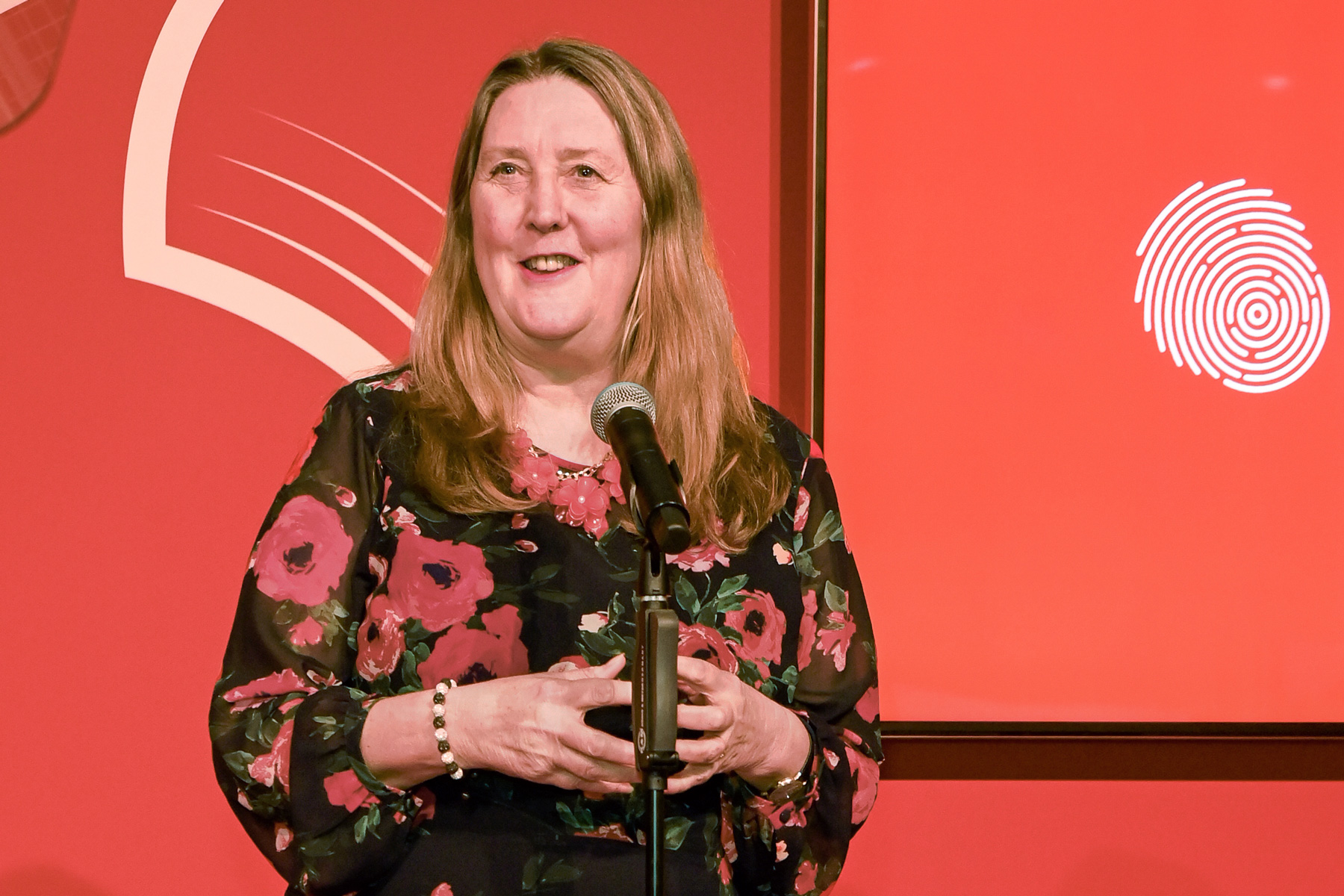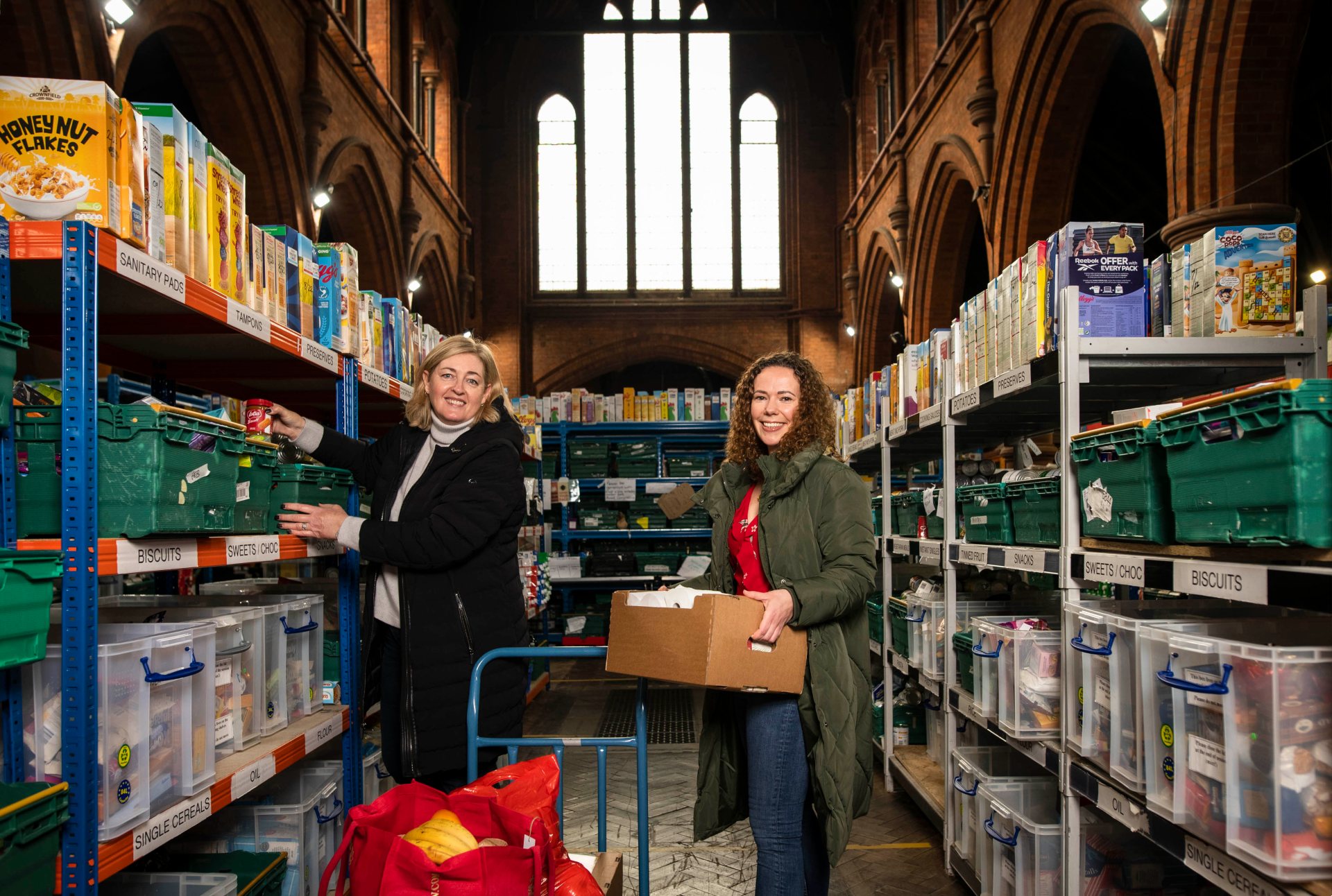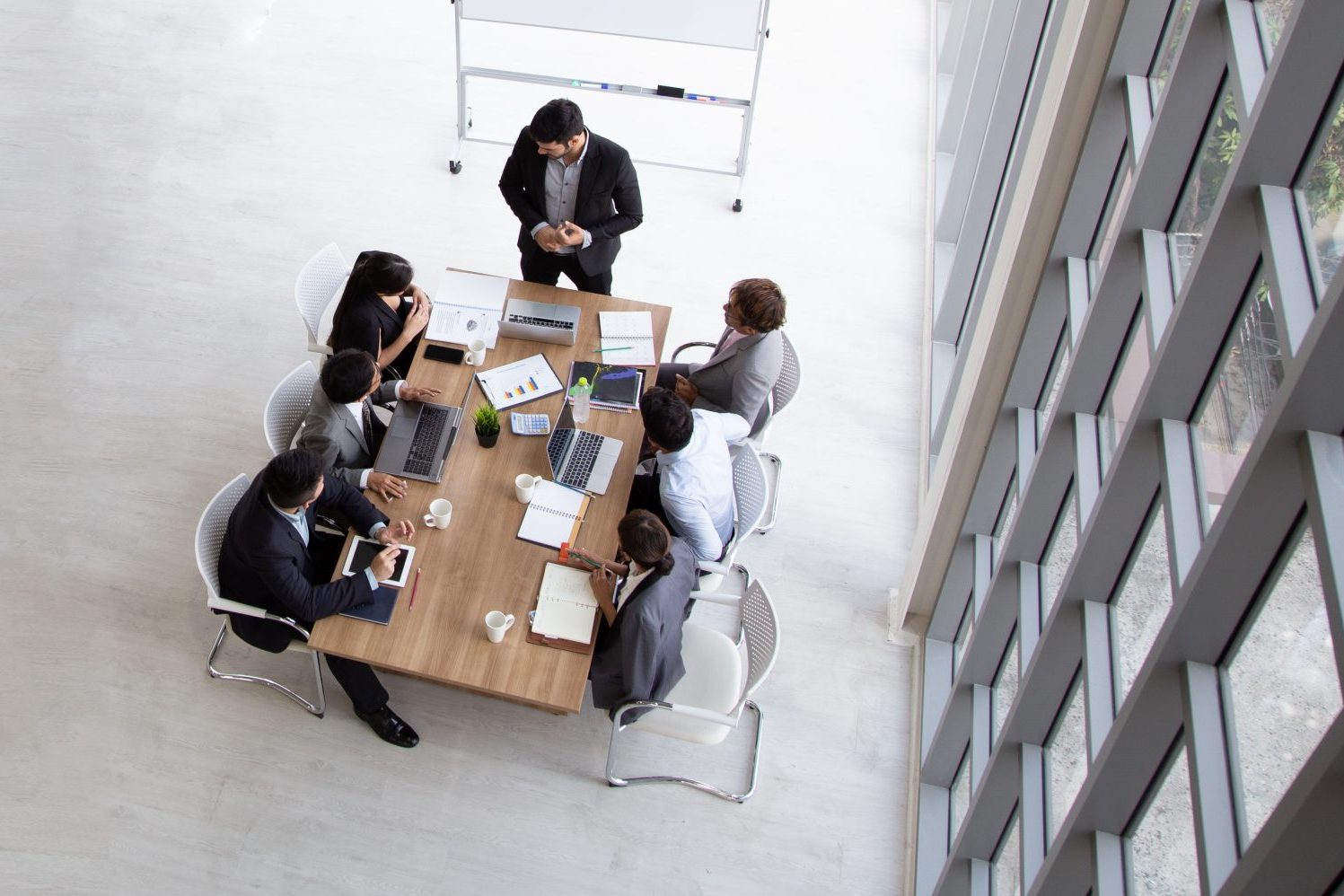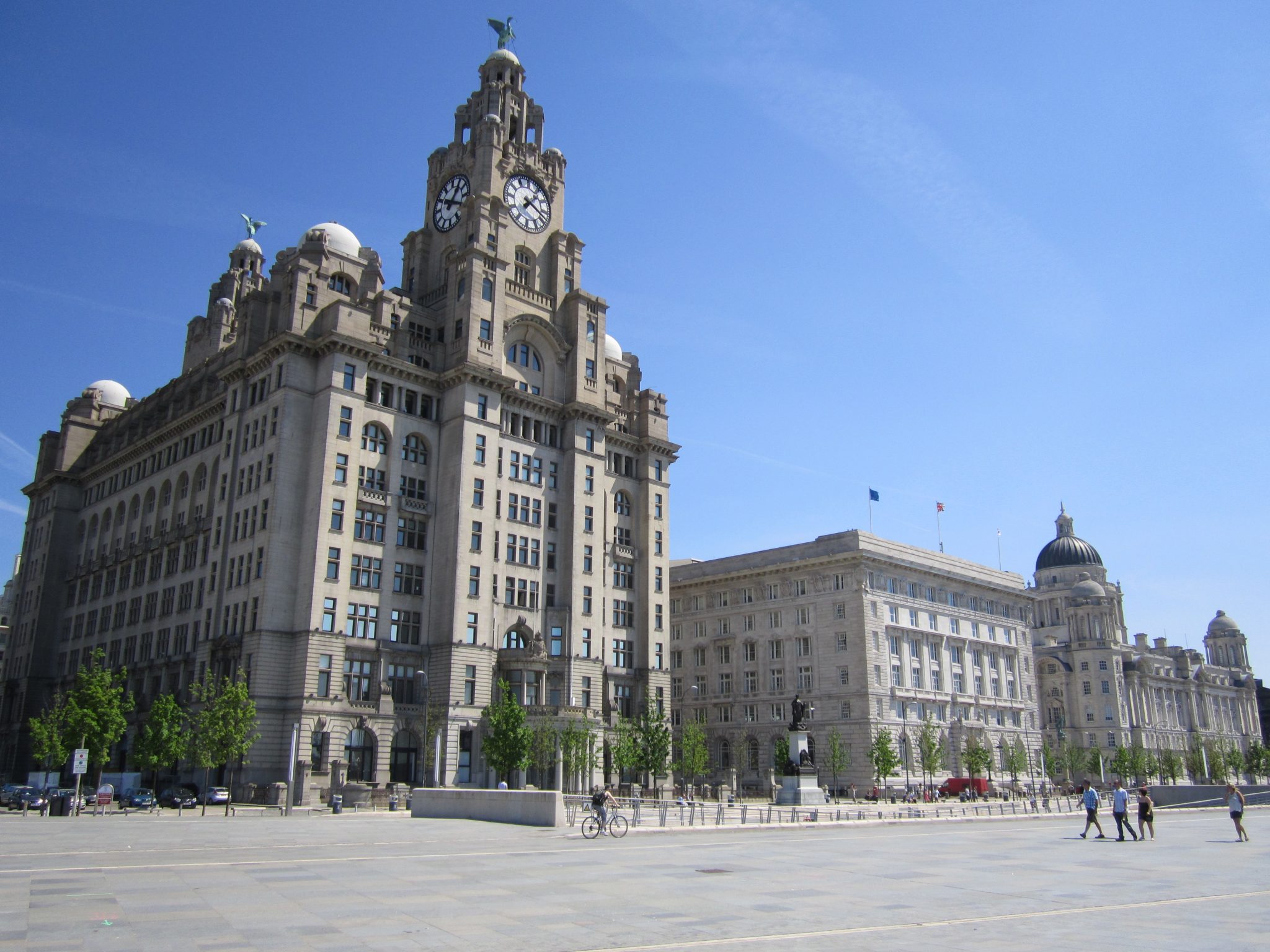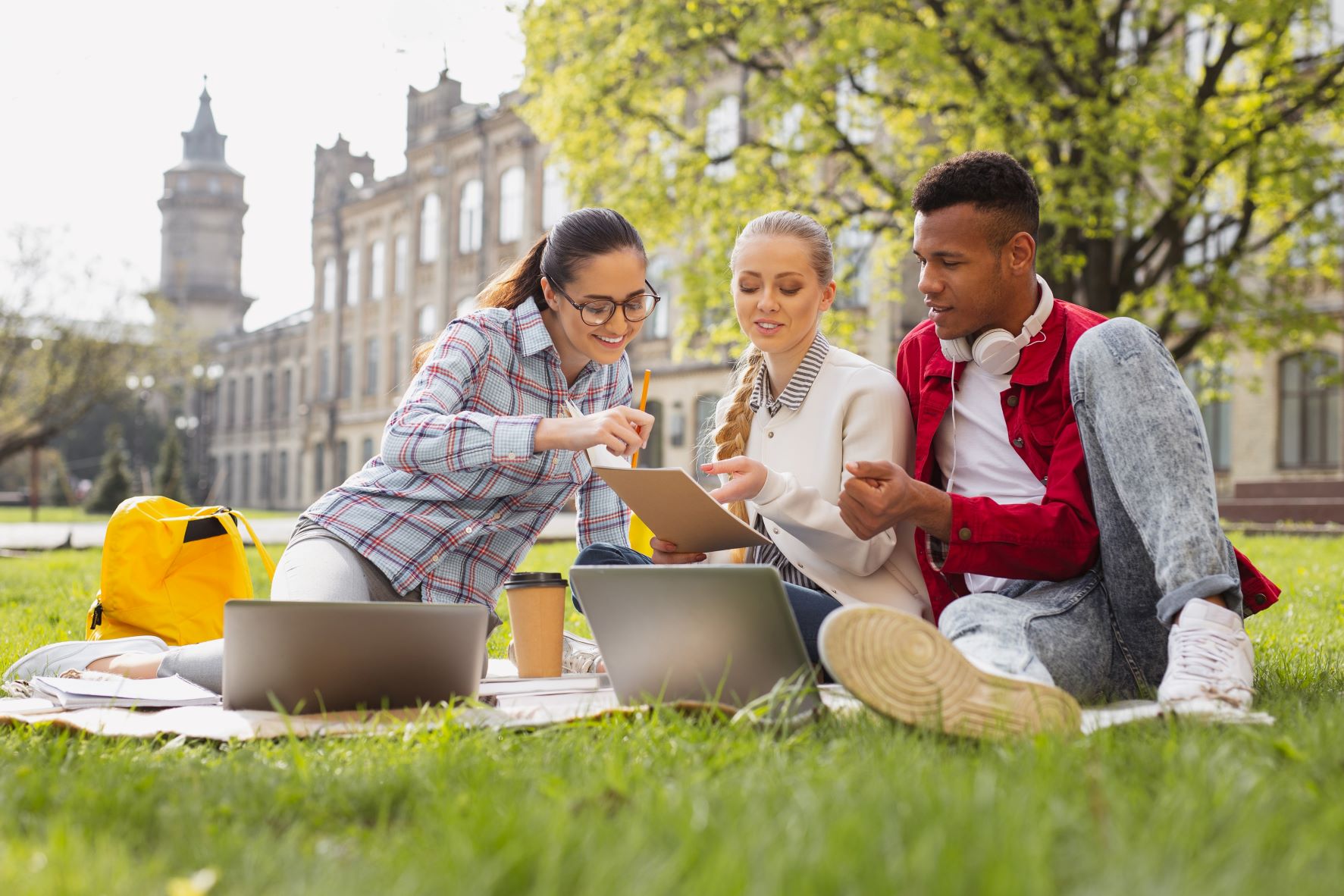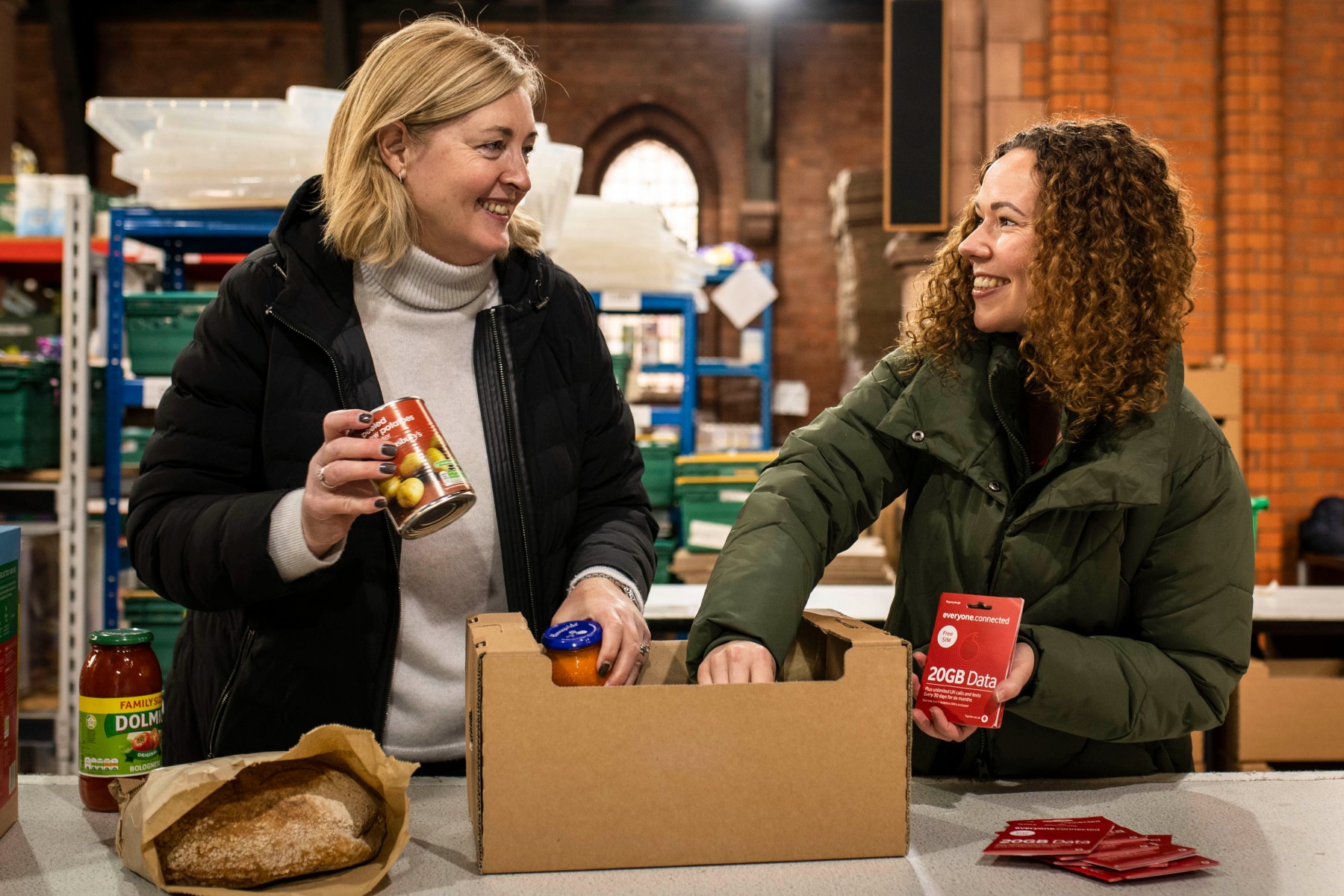We caught up with Good Things Foundation’s Group CEO, Helen Milner, to discuss her charity’s work tackling digital exclusion and it’s three-year strategic partnership with Vodafone.
Helen Milner says she has always been interested in the potential of technology to improve people’s lives, particularly society’s most marginalised.
She has spent a large part of her working life building relationships with local charities, community groups and non-governmental organisations which all share a desire to help those most in need.
It is this network of organisations – from homeless and refugee shelters, to community groups and charities such as Citizens Advice – that underpins Good Things Foundation, which Helen founded in 2011. The aim is to spread the benefits of tech across society, teach digital skills, and narrow the digital divide.
“Connectivity has become an essential not a luxury, particularly in a post-COVID world,” she tells Vodafone UK News.
“So how do we remove the barriers that prevent the most excluded from society gain access to these digital technologies?
“We believe local partnerships are fundamental.”
‘Foodbanks for data’
Lockdown saw many community centres close their doors, so Good Things Foundation had to “pivot massively”, she says, and take on the provision of devices and connectivity itself.
So, in partnership with Virgin Media O2, the charity launched the National Databank in 2021 – a network of centres where people can come to pick up free SIMs loaded with 6-12 months of free calls and data, learn new digital skills, and increasingly, access donated devices, too.
“Think of them like food banks for mobile data,” says Helen.
Good Things Foundation has now reached a major milestone – 1,000 National Databank Hubs are operating across the UK.
'We've provided connectivity to 1 million people in need - now we want to reach 4 million'
As Vodafone reaches its goal to provide connectivity to one million digitally excluded people by the end of 2022, Vodafone’s UK Chief Corporate Affairs & Sustainability Officer explains why the campaign is so important and how the company plans to extend it.
“It’s great to reach the 1,000 Databanks milestone, but now we want to grow these inclusion hubs so that they are in 5,000 towns, cities, and communities by 2025,” she says.
“And we couldn’t do it without our national network of local and corporate partners.”
Vodafone joined the National Databank in January 2022, pledging to donate 24 million gigabytes of data, enough to connected 200,000 people across the UK for six months. The commitment forms part of Vodafone’s everyone.connected campaign to close the digital divide by providing connectivity to vulnerable and digitally excluded people.
“The more organisations that join the National Databank the better,” says Helen. “It makes sense for us all to work together.
“We’re building a big club, a national network with a shared vision, and helping some of the most deprived areas in the UK.”
Policy change
But Good Things Foundation needs help to promote its message to Government, Helen believes.
“Digital inclusion should be at the centre of Government policy, but it isn’t. This isn’t just a social issue, it’s an economic issue,” she argues.
Vodafone delivers more than £100m in ‘social value’ through campaign to bridge digital divide
Vodafone has provided free connectivity, devices and digital training to more than a million people and businesses through its everyone.connected campaign, delivering the equivalent of £108 million* in social value across the UK.
“The value of fixing the digital divide could be more than £12 billion over 10 years, according to the Centre for Economics and Business Research.
“So we’re hoping corporate partners like Vodafone can help us change Government policy at a national level.”
‘Building confidence’
As well as Databanks, Good Things Foundation is piloting Device Banks, where those without smartphones or tablet computers can pick up a donated device.
Similar to Vodafone’s Great British Tech Appeal device donation scheme run in partnership with Barnardo’s, Helen says the charity wants to encourage businesses in particular to donate old phones and tablet computers when they’re refreshing their stock.
Vodafone is co-operating by providing free SIMs for these devices and the company’s Tech Appeal and Good Things’ Device Banks are already working on a plan to work closely together.
“People shouldn’t have to worry about whether they can afford to get online anymore,” says Helen. “And this connectivity will help them build their confidence, apply for jobs, get off benefits, and take a full part in the UK’s digital society.”
We caught up with Good Things Foundation’s Group CEO, Helen Milner, to discuss her charity’s work tackling digital exclusion and it’s three-year strategic partnership with Vodafone.
But it’s keeping in touch with friends and family and feeling included that’s equally, if not more important than the economic arguments for digital inclusion, says Helen.
“At the end of the day this is about humanity and compassion. When I see someone weep for joy when they get a SIM because now it means they can keep in touch with their loved ones, it makes me realise just how important this campaign is and how damaging and dehumanising digital exclusion can be.”
As the pace of technological advancement accelerates, there are many in society who are being left further and further behind, Helen warns.
“There’s no silver bullet or quick fix for this issue,” she says. “Our Databanks are amazing but connectivity is nothing without the digital skills to use that technology effectively.
“This is why our network of local organisations, embedded in local communities, is so important.”
Stay up-to-date with the very latest news from Vodafone by following us on Twitter and signing up for News Centre website notifications.
